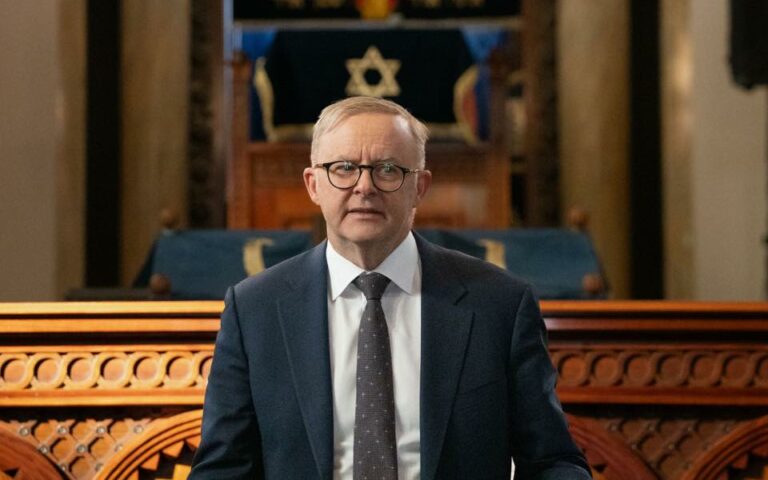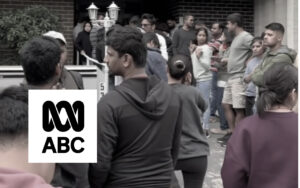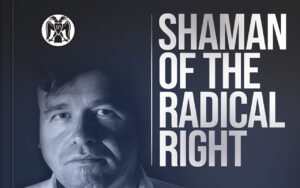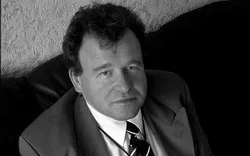Donald Rothwell, Australian National University
In an unprecedented legal development, senior Australian politicians, including Prime Minister Anthony Albanese, have been referred to the International Criminal Court (ICC) for investigation into whether they have aided or supported Israel’s actions in Gaza.
The referral, made by the Sydney law firm Birchgrove Legal on behalf of their clients, is the first time any serving Australian political leaders have been formally referred to the ICC for investigation.
The referral asserts that Albanese, Foreign Minister Penny Wong, Opposition Leader Peter Dutton and other members of the government have violated the Rome Statute, the 1998 treaty that established the ICC to investigate and prosecute allegations of war crimes, genocide and crimes against humanity.
Specifically, the law firm references:
- Australia’s freezing of aid to the UN Relief and Works Agency for Palestine Refugees (UNRWA), the aid agency that operates in Gaza
- the provision of military aid to Israel that could have been used in the alleged commission of genocide and crimes against humanity
- permitting Australians to travel to Israel to take part in attacks in Gaza, and
- providing “unequivocal political support” for Israel’s actions in Gaza.
A key aspect of the referral is the assertion, under Article 25 of the Rome Statute, that Albanese and the others bear individual criminal responsibility for aiding, abetting or otherwise assisting in the commission (or attempted commission) of alleged crimes by Israel in Gaza.
At a news conference today, Albanese said the letter had “no credibility” and was an example of “misinformation”. He said:
Australia joined a majority in the UN to call for an immediate ceasefire and to advocate for the release of hostages, the delivery of humanitarian assistance, the upholding of international law and the protection of civilians.
How the referral process works
There are a couple of key questions here: can anyone be referred to the ICC, and how often do these referrals lead to an investigation?
Referrals to the ICC prosecutor are most commonly made by individual countries – as has occurred following Russia’s invasion of Ukraine in 2022 – or by the UN Security Council. However, it is also possible for referrals to be made by “intergovernmental or non-governmental organisations, or other reliable sources”, according to Article 15 of the Rome Statute.
The ICC prosecutor’s office has received 12,000 such referrals to date. These must go through a preliminary examination before the office decides whether there are “reasonable grounds” to start an investigation.
The court has issued arrest warrants for numerous leaders over the past two decades, including Russian President Vladimir Putin and his commissioner for children’s rights, Maria Lvova-Belova; former Sudanese President Omar al-Bashir; and now-deceased Libyan leader Muammar Gaddafi.
Why this referral is unlikely to go anywhere
Putting aside the merit of the allegations themselves, it is unlikely the Australian referrals will go any further for legal and practical reasons.
First, the ICC was established as an international court of last resort. This means it would only be used to prosecute international crimes when courts at a national level are unwilling or unable to do so.
As such, the threat of possible ICC prosecution was intended to act as a deterrent for those considering committing international crimes, as well as an incentive for national authorities and courts to prosecute them.
Australia has such a process in place to investigate potential war crimes and other international crimes through the Office of the Special Investigator (OSI).
The OSI was created in the wake of the 2020 Brereton Report into allegations of Australian war crimes in Afghanistan. In March 2023, the office announced it first prosecution.
Because Australia has this legal framework in place, the ICC prosecutor would likely deem it unnecessary to refer Australian politicians to the ICC for prosecution, unless Australia was unwilling to start such a prosecution itself. At present, there is no evidence that is the case.
Another reason this referral is likely to go nowhere: the ICC prosecutor, Karim Khan, is currently focusing on a range of investigations related to alleged war crimes committed by Russia, Hamas and Israel, in addition to other historical investigations.
Given the significance of these investigations – and the political pressure the ICC faces to act with speed – it is unlikely the court would divert limited resources to investigate Australian politicians.
Increasing prominence of international courts
This referral to the ICC, however, needs to be seen in a wider context. The Israel-Hamas conflict has resulted in an unprecedented flurry of legal proceedings before the International Court of Justice (ICJ), the UN’s top court.
Unlike the ICC, the ICJ does not deal with individual criminal responsibility. The ICJ does, however, have jurisdiction over whether countries violate international law, such as the Genocide Convention.
This was the basis for South Africa to launch its case against Israel in the ICJ, claiming its actions against the Palestinian people amounted to genocide. The ICJ issued a provisional ruling against Israel in January which said it’s “plausible” Israel had committed genocide in Gaza and ordered Israel to take immediate steps to prevent acts of genocide.
In addition, earlier this week, a new case was launched in the ICJ by Nicaragua, alleging Germany has supported acts of genocide by providing military support for Israel and freezing aid for UNRWA.
All of these developments in recent months amount to what experts call “lawfare”. This refers to the use of international or domestic courts to seek accountability for alleged state-sanctioned acts of genocide and support or complicity in such acts. Some of these cases have merit, others are very weak.
As one international law expert described the purpose:
It’s […] a way of raising awareness, getting media attention and showing your own political base you’re doing something.
These cases do succeed in increasing public awareness of these conflicts. And they make clear the desire of many around the world to hold to account those seen as being responsible for gross violations of international law.![]()
Donald Rothwell, Professor of International Law, Australian National University
This article is republished from The Conversation under a Creative Commons license. Read the original article.






















